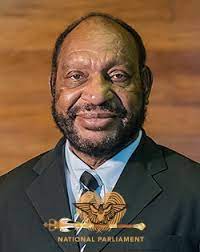Gender Equity
Section 55 of the Constitution of Papua New Guinea states that their should be;
“Equality for citizens in all areas of social, economic and political development irrespective of race, tribe, place of origin, political opinion, colour, creed, religion or sex”
The GESI Policy is an initiative of the Department of Personal Management (DPM) which was approved by: National Executive Council (NEC) on the 20th December, 2012 and Launched by DPM on the 30th January, 2013. Foundations in Public Service Management Act (PSMA), Public Service (PS) Code of Business Ethics & Conduct and the General Order, specifically General Order (GO) 20, (52 – 82) & Vision 2050 – Pillar No. 1- “Human Capital Development, Gender, Youth & People Empowerment”
Department of Finance launched: GESI Desk on the 29th of October, 2014, by Secretary DoF – Who is our Male Advocate Champion.
Gender Equity & Social Inclusion (GESI)Equity
Gender :
Gender describes the different roles and responsibilities of women and men – what males and females do, what they are responsible for, how they are expected to behave, what they are allowed to do, and what is seen as normal and proper behaviour in the community.
Equity
Treating people fairly (not necessarily equally), so that they need to achieve their best, i.e. providing access to resources, opportunities, power and responsibility they need to reach their full potential. E.g. setting up programmes, policies, training
Gender Equality
Roles of women & men are valued equally ,i.e.; there is equal opportunities, equal treatment and equal entitlements. Equal is directly linked to Human Development. Design initiatives whereby we all work towards achieving a goal for the benefit of this Department, our community and the country.
Social Inclusion
Social Inclusion means ensuring that socially excluded (Disadvantaged) people have equal opportunities for realising their full human rights and potentials to contribute towards the development of the nation and to equally benefit from the results
A socially Inclusive and diverse workplace is achieved by recognising the values and differences of each individuals and using these people at their workplace to achieve their full potential (GESI Policy).
GESI Policy takes into consideration the diversity of our people and their health, social and living conditions, we (PNG) are so much attached to our customs, tribes/clans, Religion and professional responsibilities.
GESI Principles &Values (GESI)Equity
A workplace culture that embraces GESI principles and values is characterised by:
-
- Access to opportunities
Recruitment and promotion based on merit - Inclusive policy and practice
A safe work place and created opportunities for advancement for all - Fair and participative decision making
Freedom from bias - Transparent processes
Reasonable adjustments to remove barriers to employment - Engaged employees performing to their full potential
Respectful communication - Demonstrated, more democratic style of leadership.
- Access to opportunities


